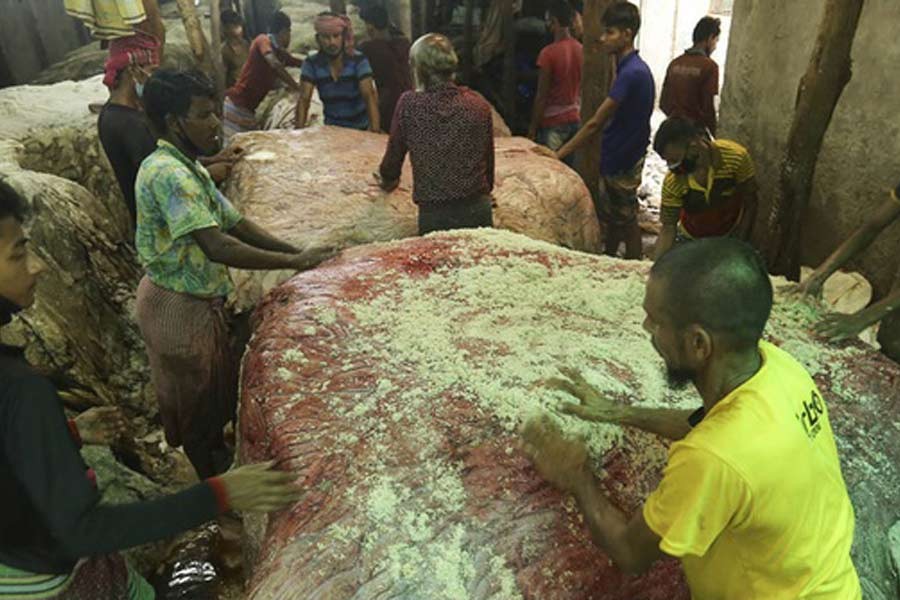
Published :
Updated :

Mosques, madrasas, orphanages and individual stakeholders had initially been aghast at the money they got for the rawhides of cattle sacrificed during Eid-ul-Azha. But their qualms were eventually allayed as the merchants sold the hides at the prices they expected.
The tanneries purchased rawhides processed with salt from the merchants at the rate fixed by the government or higher, easing the worries over a possible price shock due to the coronavirus crisis, reports bdnews24.com.
The merchants received Tk 700 to Tk 900 per cowhide from the tanneries having bought those at decades-low rates between Tk 200 and Tk 600 apiece. The trading was faster than the previous years as well.
The merchants at Posta, the rawhide trade hub in Old Dhaka’s Lalbagh, sold almost 90 per cent of the rawhides they collected during the Eid and delivered half the orders.
Many of the tanneries, including Akij, Apex and Bay, paid above the government-fixed rates as they sought to pick up only high-quality rawhides.
Aftab Ali, the president of Bangladesh Hide and Skin Merchants’ Association, said the government set the prices of rawhides preserved with salt by the merchants, not the ones without salt.
Those who sold the rawhides to merchants would have gotten fair prices had the government fixed the prices of rawhides without salt as well, he added.
Most of the rawhides collected annually in Bangladesh are sourced from cattle slaughtered during the Eid. The merchants’ association said they get 220 million square feet rawhides each year on average.
About 4 million sacrificial cattle have been slaughtered across the country during the Eid this year while the tanneries have collected about 500,000 rawhides from the wholesalers in Dhaka.
The tanneries began buying rawhides from the wholesalers of Mymensingh’s Shambhuganj market while bargaining was underway with traders of other markets, said Sakhawat Ullah, the general secretary of Bangladesh Tanners’ Association.
Its President Shaheen Ahmed, however, said many of the tanneries were not interested in buying more as they have stocks of rawhides worth Tk 30 billion lying unsold due to the coronavirus pandemic.
Bangladesh exports most of its finished leather to China. However, the pandemic has severely affected exports since the outbreak earlier this year.
Shakhawat said Chinese traders had cancelled many orders, but now they are offering half the prices for the products.


 For all latest news, follow The Financial Express Google News channel.
For all latest news, follow The Financial Express Google News channel.